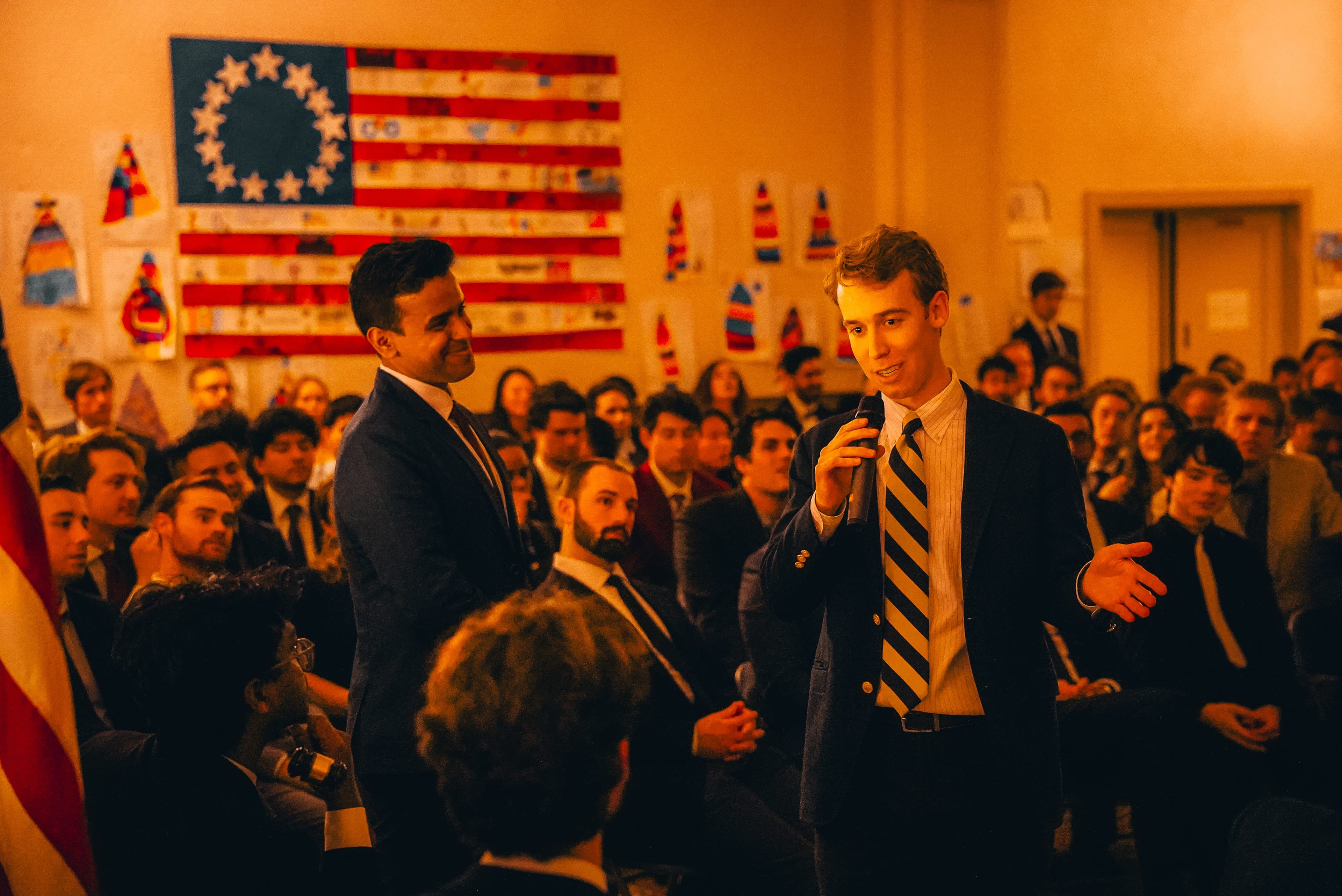
Meet the Secret Society Where Young Tech Debates the Future of the WestJan 30
the hamilton society, which hosts monthly debates inside a catholic church, is quickly becoming a cultural focal point in san francisco

[This is the second part of a two-part essay. If you haven’t yet already, be sure to check out Tether, Part I]
II.
For as long as I can remember I’ve questioned the nature of reality. As a kid, this was not the stuff of idle daydreams, or precociousness, which is just to say my purpose here is not to brag that I was an especially good student. In the first place, I wasn’t, and anyway the sensation I experienced was never one of learning. What I felt was more disquieting than that, and sometimes even frightening, as none of my questions about the world could be answered in a way that satisfied my curiosity. Chief among them: how does this — reality — exist? How, from nothing, does existence exist?